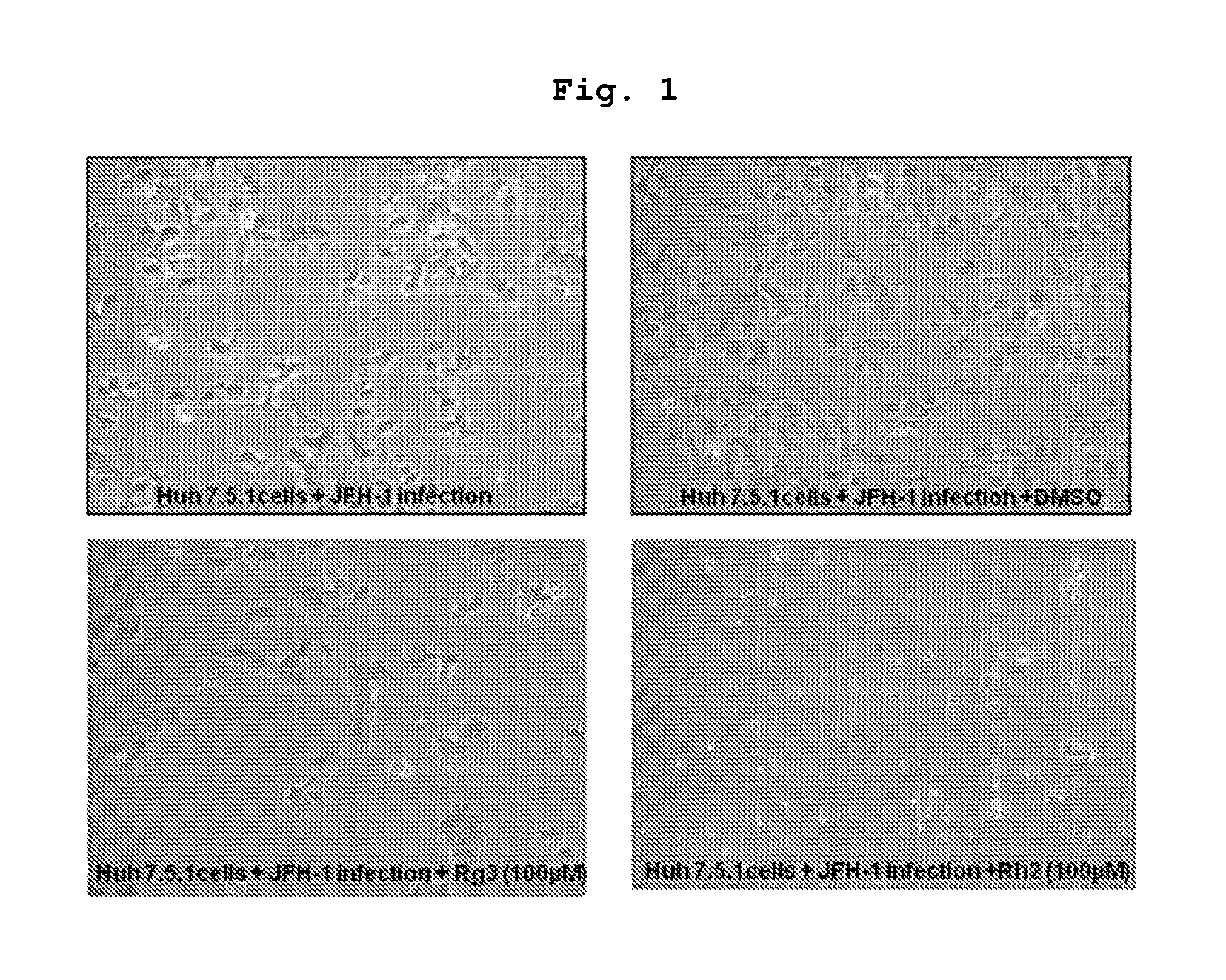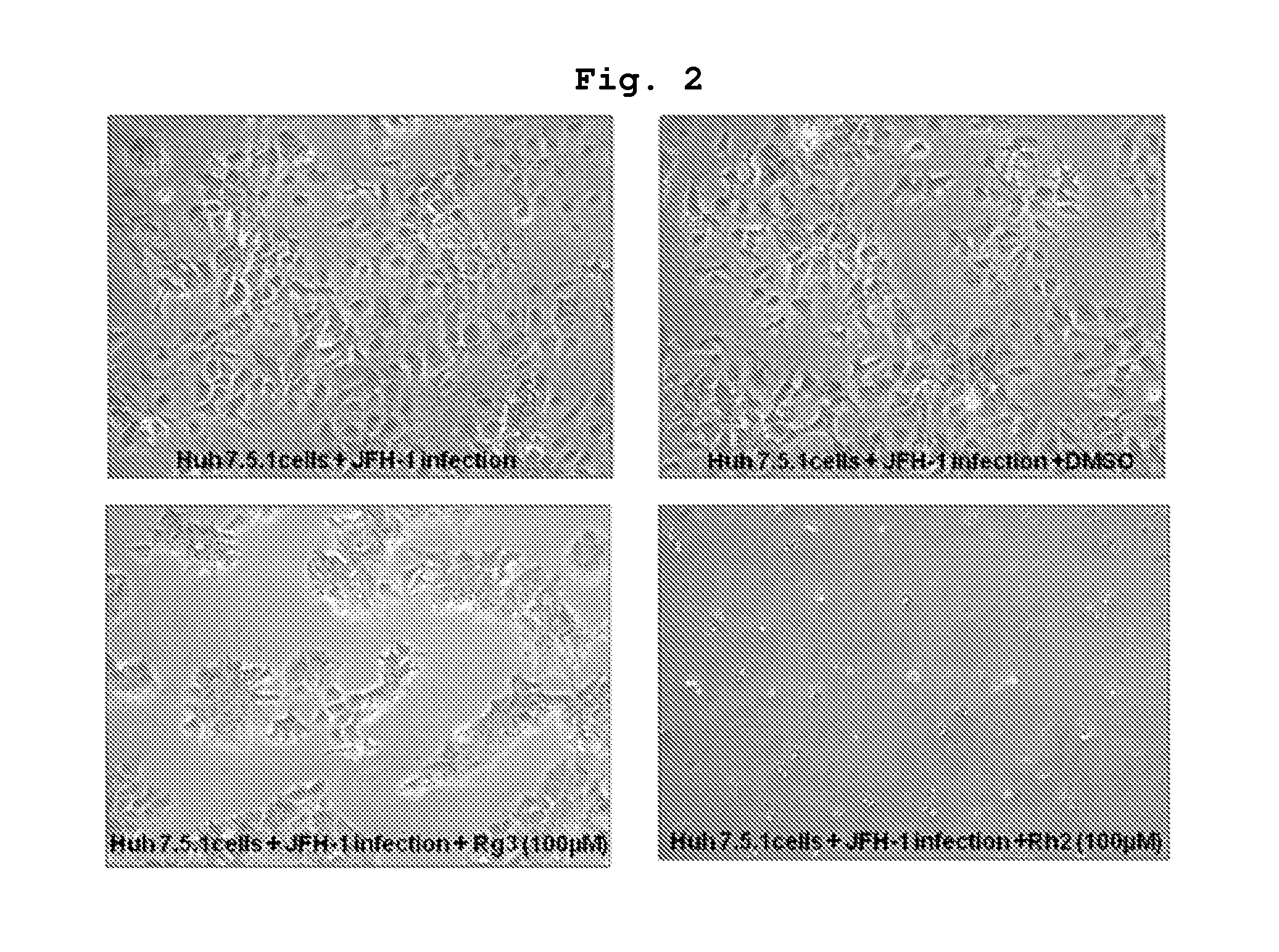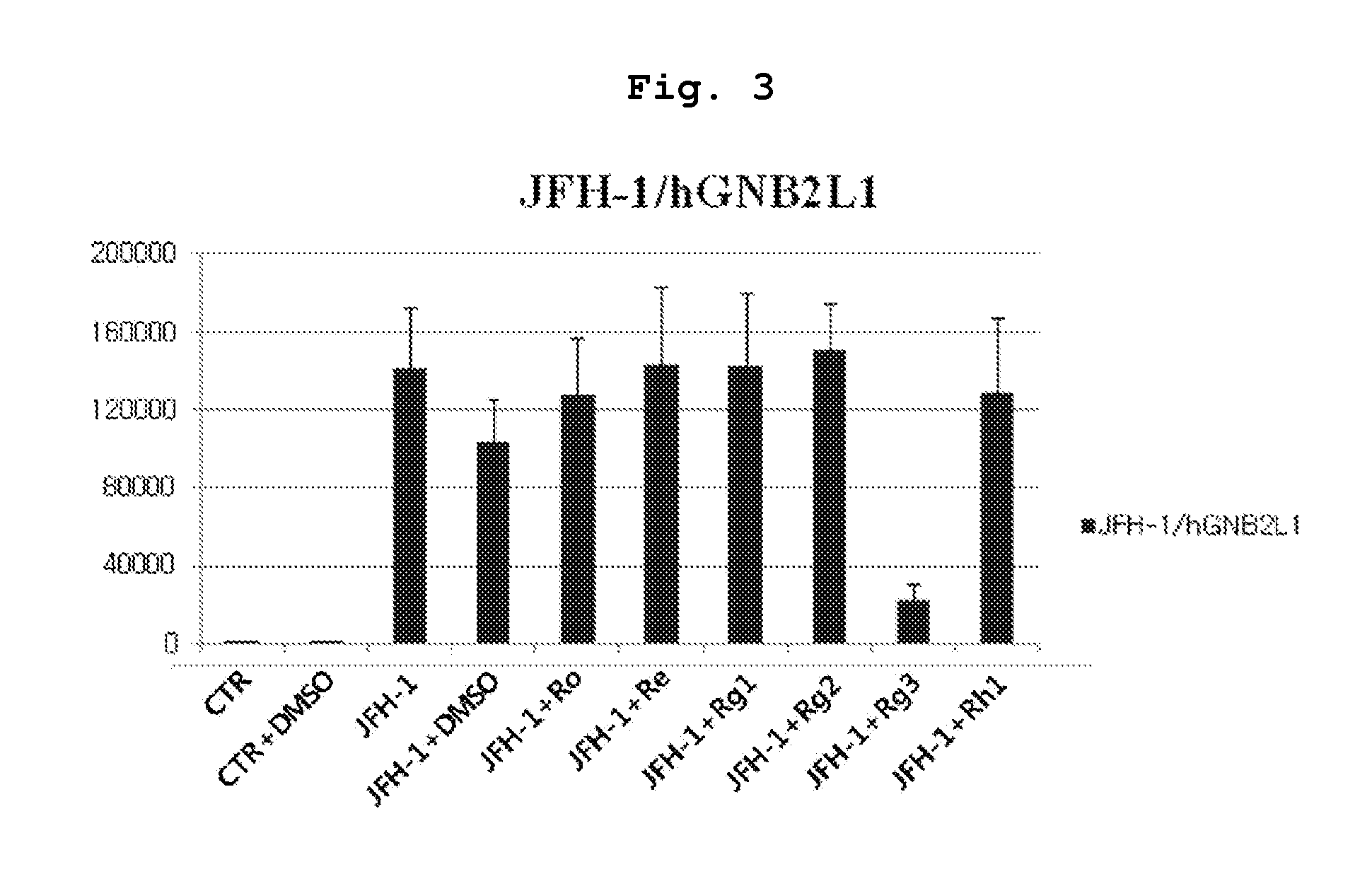Compositions for prevention or treatment of Hepatitis C virus containing ginsenoside Rg3 as an active ingredient
a technology of ginsenoside and active ingredient, which is applied in the direction of biocide, drug composition, food preparation, etc., can solve the problems of unable to achieve the effective treatment agent of hcv, unable to meet the requirements of a satisfactory hepatitis c vaccine, and difficult to achieve the effective vaccine invention of hcv. , to achieve the effect of increasing thioredoxin
- Summary
- Abstract
- Description
- Claims
- Application Information
AI Technical Summary
Benefits of technology
Problems solved by technology
Method used
Image
Examples
implementation example 1
Acquisition of Ginsenosides
[0074]Ginsenosides used in the presented invention were purchased from Ambo Research Institute (Daejeon, Republic of Korea).
implementation example 2
Hepatoma Cell Line (Huh 7.5.1) Culturing and Division
[0075]Experiments in the present invention utilized Huh 7.5.1 cell, Hepatoma cell line, since the Huh 7.5.1 cell was well known as the cell line to be most easily infected with Hepatitis C virus (JFH-1) through current experimental models of Hepatitis C virus
[0076] Huh 7.5.1 Cell Culturing
[0077]After taking out Huh 7.5.1 cell stock vial which was kept in LN2 (nitrogen) tank, the Huh 7.5.1 cell stock vial warmed up in 37° C. water bath for 1½ minutes to 2 minutes. Then, the thawed Huh 7.5.1 cells were transferred to a cornical tube and mixed with 10 mL complete media (CM). The mixture centrifuged for 5 minutes at 1000 RPM, and the supernatant of the mixture collected. And then, after mixing the pellet in the cornical tube with 1 mL complete media, the mixture was transferred to a cell culture dish and 10 ml CM was added. And then, the cell culture dish was shaken in cross patterns to spread the Huh 7.5.1 cells out evenly. Then, the...
implementation example 3
Virus Infection and Ginsenosides Treatment
[0080]About 200,000 Huh 7.5.1 cells were added to a 60×15 mm cell culture dish and every 100 μM of seven ginsenosides (Ro, Re, Rg1, Rg2, Rg3, Rh1, Rh2) per 60×15 mm cell culture dish each was treated. Since it was necessary for ginsenosides in powder formulation to make solutions for the experiments, 50 mM basic concentration solutions for the seven ginsenosides each were prepared and the basic solutions were refrigerated at 4° C. until they were needed.
[0081]Specific design of the experiment follows.
[0082]Non-treatment group (Control), Non-treatment group and DMSO 10 μl treatment group (Control+DMSO 10 μl), JFH-1 virus treatment group (Only JFH-1), JFH-1 virus and DMSO 10 μl treatments group (JFH-1+DMSO 10 μl), JFH-1 virus and Ro 100 uM treatments group (JFH-1+Ro 100 uM), JFH-1 virus and Re 100 uM treatments group (JFH-1+Re 100 uM), JFH-1 virus and Rg1 100 uM treatments group (JFH-1+Rg1 100 uM), JFH-1 virus and Rg2 100 uM treatments group (...
PUM
| Property | Measurement | Unit |
|---|---|---|
| real time PCR | aaaaa | aaaaa |
| temperature | aaaaa | aaaaa |
| pH | aaaaa | aaaaa |
Abstract
Description
Claims
Application Information
 Login to View More
Login to View More - R&D
- Intellectual Property
- Life Sciences
- Materials
- Tech Scout
- Unparalleled Data Quality
- Higher Quality Content
- 60% Fewer Hallucinations
Browse by: Latest US Patents, China's latest patents, Technical Efficacy Thesaurus, Application Domain, Technology Topic, Popular Technical Reports.
© 2025 PatSnap. All rights reserved.Legal|Privacy policy|Modern Slavery Act Transparency Statement|Sitemap|About US| Contact US: help@patsnap.com



